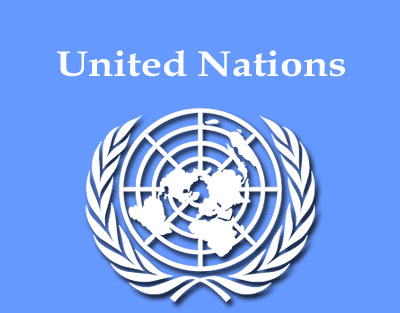UN rights chief urges nations to attend Durban conference
 Geneva - All countries should attend the upcoming United Nations-sponsored conference against racism, the international body's top rights expert said Thursday.
Geneva - All countries should attend the upcoming United Nations-sponsored conference against racism, the international body's top rights expert said Thursday.
Navi Pillay, the High Commissioner for Human Rights, said victims of racism would reap the greatest benefits from the conference which should not get bogged down by "diversions," a reference to parochial issues that some states had been pursuing.
"I am quite wary of the fact that someone or another may attempt to revisit issues that were dropped," said Pillay, a South African jurist. "There is that possibility, but I have not received any indication from any state that they intend to do so."
She added the she hoped there would be no surprises.
So far, she noted, five heads of state and numerous ministers had agreed to attend, including the South African foreign minister. The official announcement of who exactly would attend was to be made closer to the date of the conference.
The racism review set to take place for four days starting on April 20 would be a follow-up to a 2001 conference which took place in Durban, South Africa.
While some parts of the original conference were tainted with controversy, 189 states signed the final declaration, with the notable exception of the United States and Israel, who left early.
Lately, some critics of the conference have slammed the Durban Declaration, known as the DDPA.
"I am surprised how few people have read the DDPA," said Pillay talking to reporters. "Over eight years this review conference has been stigmatized."
She felt that if more people read the 2001 declaration they would drop their objections.
An original text circulated for the upcoming review included specific mentions of Israeli policy in the Palestinian territories and blasted the so-called defamation of religion. However, both these issues were removed in a slimmed down text presented last month.
The drafting committee was set to meet again next week for a last time before the conference, to hammer out the details of the document.
Pillay also reflected on her own past in South Africa during its years of racist rule.
"We were breaking the law every day as we functioned in apartheid South Africa," she said of her and her husband's violation of racial laws to aid the black population.
Her own family arrived to South Africa from the Indian subcontinent. Pillay went on to study law, after her community pooled funds so she could afford the tuition.
She became a judge in her home country and served on the international tribunals for Rwanda, a time to which she frequently refers, noting the connection between racism and genocide.
She said she had been encouraged by recent apologies issued by Canada and Australia to their indigenous populations.
Canada, however - while a member of the 47-state Human Rights Council - said it would not attend the review conference,
"I am urging Canada to participate in the conference," said Pillay. "It is not clear what their objections are" given the revised text, she added.
"Yesterday I addressed a letter to the minister of foreign affairs of Canada inviting them to attend," Pillay said.
UN Secretary General Ban Ki-moon also asked Prime Minister Steven Harper to change his government's position.
Israel has also said it will not attend, while the US has yet to announce a decision. (dpa)